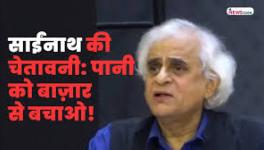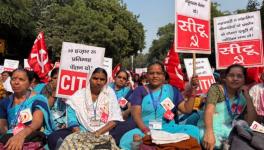Was ‘Mini Ratna’ FSNL’s Privatisation Inevitable?
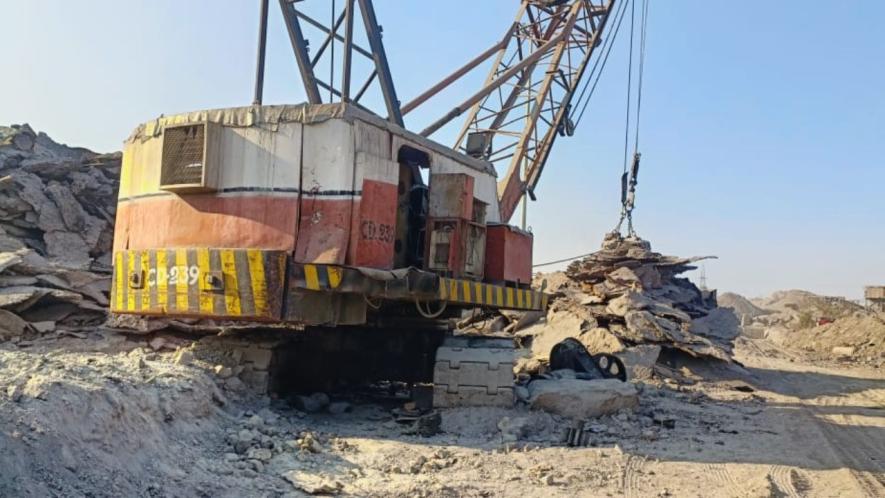
Scrap processing equipment of FSNL at Durgapur Steel Plant.
Public sector enterprise Ferro Scrap Nigam Limited (FSNL), which has remained consistently profitable for 46 years, was recently privatised by the Central government and handed over to the Japanese company, Konoike Transport Co., Ltd. FSNL plays a crucial role in steel processing for the country’s public sector steel plants.
The decision to privatise such a well-established and skilled organisation raises significant concerns—why was FSNL, which operates under the Ministry of Steel, transferred to a foreign company? Furthermore, where FSNL is the most involved in their work, the Steel Authority of India Limited (SAIL), has explicitly stated that it has no involvement in this matter.
FSNL’s employees are now facing uncertainty regarding their job security. The intrusion of a foreign company into India’s steel industry has raised concerns among labour unions about its long-term impact on the public sector steel industry. Can India’s public sector steel plants maintain their prestigious legacy, or is this a precursor to further privatisation? Several trade union leaders have emphasised the need for a joint movement to oppose this decision.
The Glorious History of FSNL, a ‘Mini Ratna’
Iron ore is the primary raw material for steel manufacturing, and coal-fired steel plants are among the major sources of carbon dioxide emissions. Due to global environmental concerns and the need to reduce carbon footprints, steel factories are increasingly adopting cleaner alternatives, such as hydrogen, coal gasification, and electricity.
Scrap processing plays a crucial role in sustainable steel production by recovering iron and reintroducing it into the steelmaking process. This is precisely the role FSNL has been fulfilling for decades.
FSNL was established on March 28, 1979, during the Janata Party’s tenure, under the Ministry of Steel, to provide steel mill services. The company specialises in the recovery and processing of scrap from slag generated during iron and steel production in various public sector steel plants across India. FSNL has been an essential part of these plants and is a 100% subsidiary of the public sector undertaking Metal Scrap Trade Corporation Limited (MSTC).
Despite not owning any land of its own, FSNL operates within public sector steel plants across the country. Its headquarters, FSNL Bhavan, is located inside the Bhilai Steel Plant in Chhattisgarh. The company is equipped with modern technology required for scrap processing.
Since its inception in 1979, FSNL has provided services to major public sector steel plants, including Bhilai, Rourkela, Bokaro, and Indian Iron and Steel Company (IISCO) Burnpur. In 1991, FSNL expanded its operations to the Durgapur Steel Plant (DSP), which was previously serviced by Thomas Mouget and Company. Today, FSNL operates in key steel plants across India, including Durgapur Alloy Steel, Salem Steel Plant in Tamil Nadu, Vizag Steel Plant in Andhra Pradesh, NilachalIspat Nigam Limited in Duburi, ArcelorMittal Nippon Steel India, Mishra Dhatu Nigam in Hyderabad, and NMDC Integrated Steel Plant in Nagarnar.
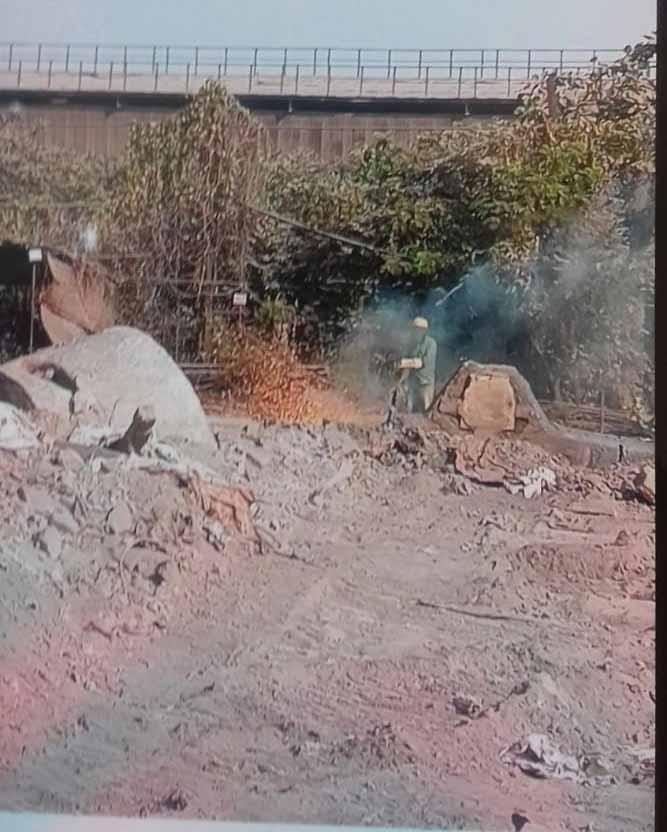
FSNL worker at Durgapur Steel Plant in West bengal.
The company has also provided services for other major industrial entities, such as Bharat Heavy Electricals Limited (BHEL) in Haridwar, Visvesvaraya Iron and Steel Plant (VISP) in Karnataka, and Air India in Mumbai. Its expertise and reliability have earned it the prestigious "Mini Ratna" status.
A Profitable PSE Handed Over to a Foreign Firm
FSNL employees receive salaries and benefits comparable to those of SAIL employees, as per the Ministry of Steel. The company has consistently been profitable and a trusted part of India's steel industry. It has delivered substantial financial returns over the years, contributing significantly to MSTC’s earnings.
In the past five years, FSNL has recorded a profit of Rs 261.82 crore and maintains a reserve fund of Rs 124 crore. It is expected to generate Rs 202 crore from the market, while its work orders for the next two years stand at approximately Rs 1,000 crore.
According to Nishidh Choudhury, leader of the Centre of Indian Trade Unions (CITU)-affiliated FSNL Employees Union in Durgapur, FSNL’s profit is projected to reach Rs 300 crore in the near future.
Despite such financial success, the Central government has handed over this thriving public sector enterprise (PSE) to a foreign company. The question remains—why?
The Role of the Present Central Govt
On September 19, 2024, the Central government approved the privatisation of FSNL and handed it over to Konoike Transport Company Limited for only ₹320 crore, significantly lower than its actual market value. The Alternative Mechanism Committee, comprising Transport Minister Nitin Gadkari, Finance Minister Nirmala Sitharaman, and Steel Minister H.D. Kumaraswamy, approved the highest bid for the sale of 100% equity shares held by MSTC Ltd in FSNL, along with the transfer of management control. The final agreement was signed on October 24, 2024, and FSNL was officially handed over to the Japanese company.
After a few months, Konoike took control of FSNL’s operations at various public sector steel plants, including Durgapur Steel Plant. The question arises: was privatisation of FSNL truly inevitable?
The Bharatiya Janata Party (BJP)-led Central government had placed FSNL on the disinvestment list since 1999. To prevent this move, then West Bengal Chief Minister Buddhadeb Bhattacharya had written a letter to the Central government on August 1, 2003. At that time, the disinvestment plan was temporarily postponed. However, since 2016, the BJP government has persistently pursued the plan to privatise FSNL. In October of that year, the Union Cabinet approved the decision in principle, but the following year, the policy was declared cancelled.
In an interview with Press Trust of India in July 2017, then-Steel Secretary Arun Sharma stated, "We are removing FSNL from the disinvestment list because this company does not own land and has only equipment. Being a public sector unit, FSNL sells scrap to SAIL." Despite this logical assessment, the decision was unilaterally ignored, and FSNL was eventually handed over to a foreign company at a significantly undervalued price.
The fact is that Transport Minister Gadkari had previously ordered the use of recycled steel slag to enhance the country’s highway infrastructure. The Ministry of Steel requested a pilot project under the supervision of Bijoy Joshi, owner of an Australian company. On September 18, 2024, the Ministry called FSNL officials for discussions on this initiative. However, in a surprising move, the Union government announced the sale of FSNL the very next day (September 19, 2024). This sudden decision has raised serious concerns among FSNL employees.
A Delhi-based company, AAA Valuation Professional LLP, was tasked with assessing FSNL’s valuation. FSNL Employees Union leader Choudhury has alleged that the valuation process was “deliberately manipulated” to justify handing over the company to a private entity. He further claimed that FSNL’s efficiency and profitability were ignored in the assessment.
It is also worth noting that the Ministry of Road Transport and Highways, under Gadkari, has already introduced a vehicle scrappage policy, under which all vehicles older than 15 years would be scrapped. As this decision takes effect, India’s reliance on imported scrap will decrease, and iron recovered from domestic scrap will be widely used as raw material for steel factories.
In 2021, the scrap market in India was valued at ₹50,600 crore. With the vehicle scrappage policy in place, this market is projected to grow to ₹4.3 lakh crore over the next 25 years. Instead of utilising FSNL’s expertise in scrap processing, the government has handed over this lucrative market to a Japanese company.
This raises a critical question: Was this decision made in the national interest? Or does it serve the interests of certain Central ministers or leaders closely associated with the transport business? These are some questions doing the rounds among FSNL employees.
Reacting of FSNL Workers and Authorities
Currently, FSNL has 442 permanent employees and around 2,500 temporary workers. Although there are 1,380 vacant positions, no new appointments have been made for years. The company has been operating with a smaller workforce than required, and now both permanent and temporary workers face uncertainty about their job security.
Clause 11(A) of the Share Purchase Agreement states that no employee will be terminated for at least one year. However, there is no mention of what will happen after that period. It is apprehended that Konoike may force FSNL workers into early retirement through a Voluntary Retirement Schemes (VRS) or minimal compensation packages.
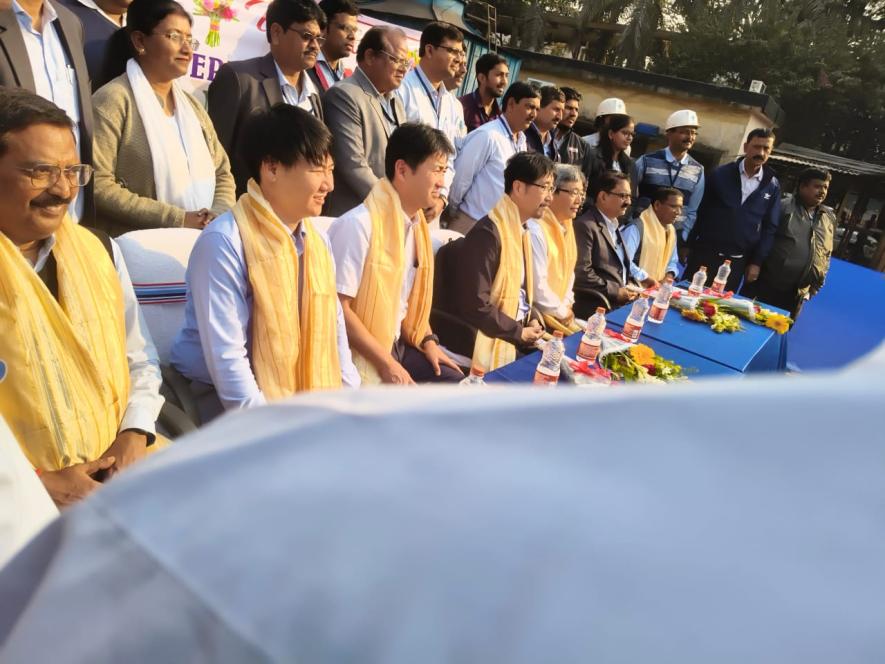
On January 26, Japanese Konoike Transport Company taking charge at Durgapur steel plant.
CITU-affiliated FSNL Employees Union general secretary Haradhan Sain said the company was initially set to continue working with SAIL until March 31, 2026, under an existing agreement. However, despite this, FSNL was sold.
A new agreement has been signed, allowing Konoike to operate FSNL for the next three years without a formal tender process. Sain also expressed concern that the foreign company would first learn FSNL’s technology operating process from Indian workers and then implement drastic changes in the workforce.
Despite the workers staging a two-day strike on September 28-29, 2024, the authorities have taken no appropriate action. Sain said, “We requested Bengal Chief Minister Mamata Banerjee to take action in this regard, which her predecessor Buddhadeb Bhattacharya had done in 2003, but she did not say anything to the Central government. She did not stand by FSNL workers.”
Meanwhile, the Deputy Labour Commissioner has scheduled a meeting on February 7, 2025, in Raipur, Chhattisgarh, to discuss the issue. Leaders from multiple trade unions, including INTUC's Harjit Singh and INTTUC’s Prabhat Chatterjee, have called for a united trade union movement to protect FSNL. CITU general secretary Tapan Sen has already sent multiple letters to government officials demanding FSNL’s protection. Workers have also initiated protests and demonstrations in several locations, including Durgapur and the Burnpur SAIL area, under CITU’s leadership.
When asked about the situation, FSNL management officials at the Bhilai headquarters refused to comment. Subrata Mukherjee, one of the officials, stated that the matter was being handled by the company’s legal team. Gajendra Saraswat, Deputy General Manager of FSNL in Durgapur, also declined to comment, directing queries to union leaders instead.
The writer covers the Jangalmahal region for ‘Ganashakti’ newspaper in West Bengal. The views are personal.
(All pictures by Madhu Sudan Chatterjee)
Get the latest reports & analysis with people's perspective on Protests, movements & deep analytical videos, discussions of the current affairs in your Telegram app. Subscribe to NewsClick's Telegram channel & get Real-Time updates on stories, as they get published on our website.













